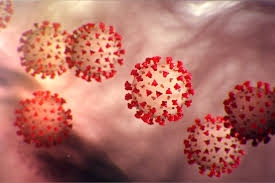The novel coronavirus responsible for COVID-19 may survive for up to 28 days on common surfaces including banknotes, glass -- such as that found on smart phone screens -- and stainless steel, according to a laboratory study by Australia’s national science agency.
The finding, published in the Virology Journal, shows that SARS-CoV-2 can remain infectious on surfaces for long periods of time, reinforcing the need for good practices such as regular hand washing and cleaning surfaces.
The research, undertaken at the Australian Centre for Disease Preparedness (ACDP), found that SARS-CoV-2 survived longer at lower temperatures and on non-porous or smooth surfaces such as glass, stainless steel and vinyl, compared to porous complex surfaces such as cotton.
The novel coronavirus responsible for COVID-19 may survive for up to 28 days on common surfaces including banknotes, glass -- such as that found on smart phone screens -- and stainless steel, according to a laboratory study by Australia’s national science agency.
The finding, published in the Virology Journal, shows that SARS-CoV-2 can remain infectious on surfaces for long periods of time, reinforcing the need for good practices such as regular hand washing and cleaning surfaces.
The research, undertaken at the Australian Centre for Disease Preparedness (ACDP), found that SARS-CoV-2 survived longer at lower temperatures and on non-porous or smooth surfaces such as glass, stainless steel and vinyl, compared to porous complex surfaces such as cotton.








13.jpeg)





139.jpeg)

260.jpeg)
259.jpeg)
258.jpeg)





